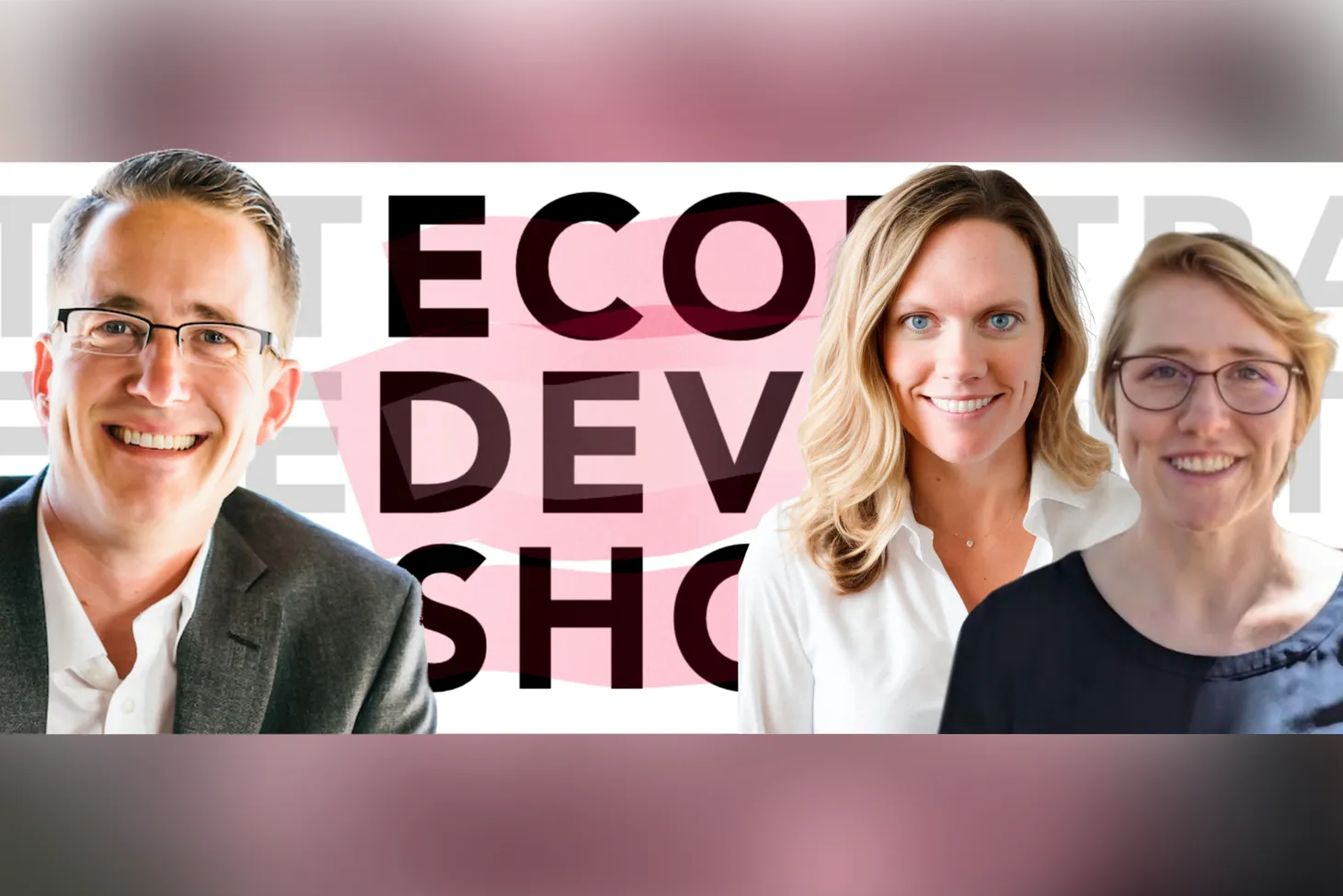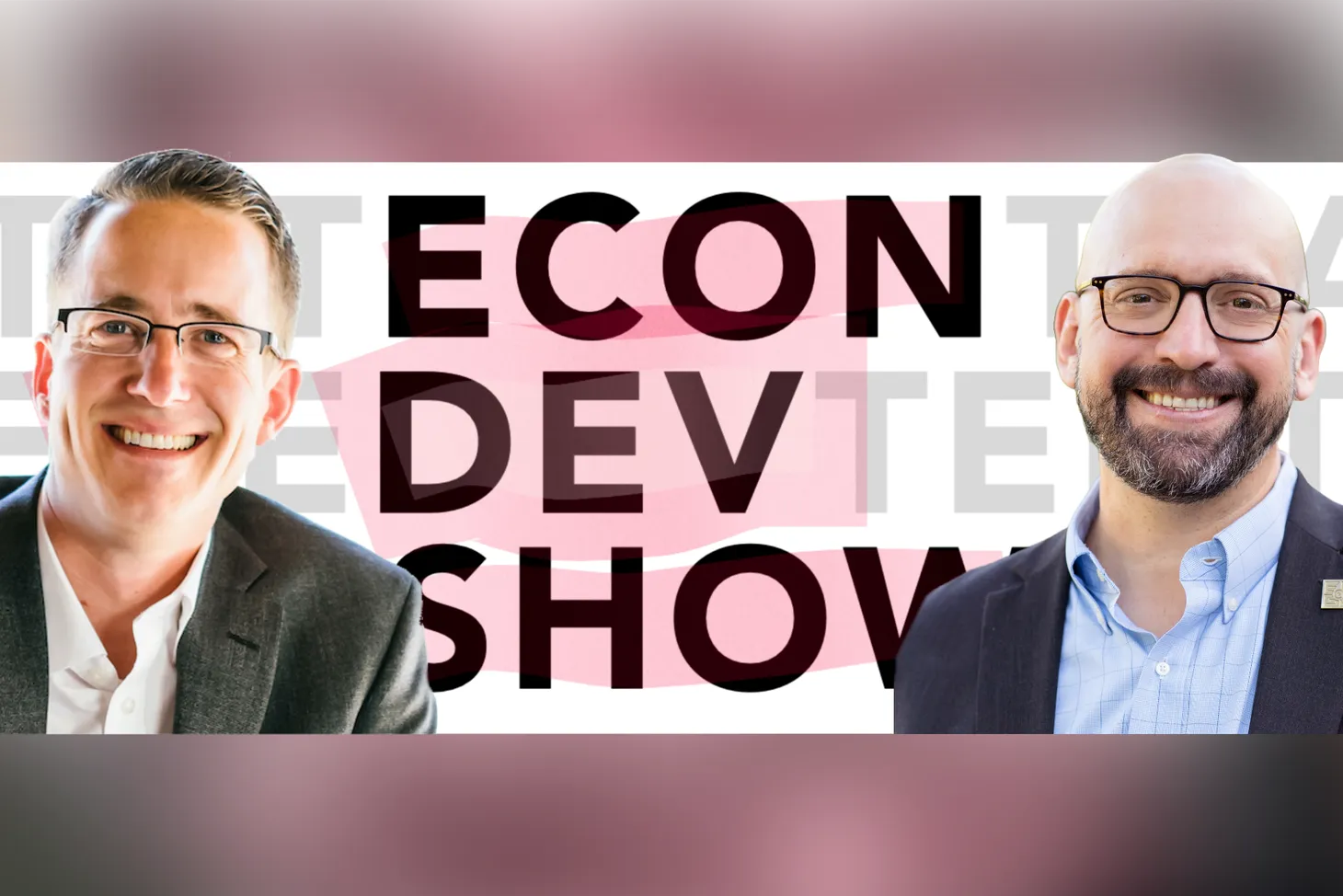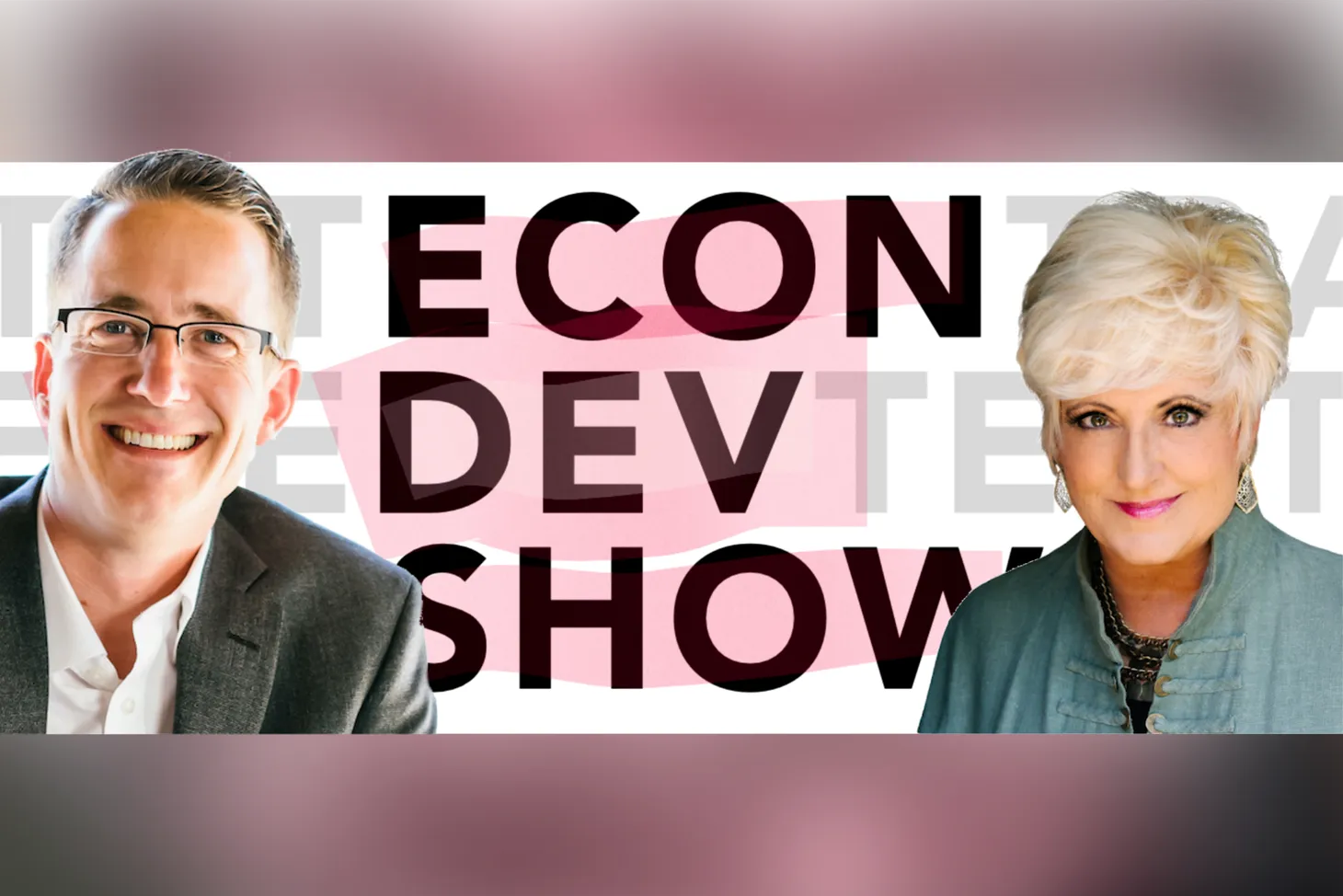Podcast Transcript: #104 With Chad Miller
Prefer to read?

Prefer to listen? Here's the podcast.
Dane Carlson: Our episode today is brought to you by Kathode Ray Media, a full service marketing agency that connects government organizations to their communities. Contact them to learn more or ask for a free no obligation consultation.
Dane Carlson: Welcome back to the Econ Dev show. Our guest today is Dr. Chad Miller. He is the graduate coordinator of the Master of Science and Economic Development Program at the University of Southern Mississippi College of Business and Economic Development. Chad, welcome to the show.
Chad Miller: Thank you, Dane. That's kind of a mouthful, so forth.
Dane Carlson: It is kind of a mouthful. I was gonna say that.
Chad Miller: So how should I call you? Should I call you Chad? Should I call you Dr. Chad? Should I call you Dr. Miller? How should I refer to you?
Chad Miller: No, Chad's fine. I have my students until they graduate call me Dr. Miller, professor. But once they get out, we always say we're educating colleagues.
Dane Carlson: Excellent. Good. So, why don't you explain that mouthful? What is the Master of Science of Economic Development Program at the University of Southern Mississippi?
Chad Miller: The Master of Science program is the first graduate program in the nation. We started in 1980 with the first class, and 1982 was the first graduates. Since then we've been putting out economic developers really focused on the nuts and bolts of economic development and what economic developers do. We're well known. We have graduates all over the nation doing all kinds of things and it's very applied. There are just not many programs, maybe half a dozen who focus on the practice of economic development.
Dane Carlson: So it started in 1980. What was the impetus for starting the program? What was the need?
Chad Miller: Well, it was a little before my time, but I understand there were some funding opportunities. A number of universities passed on it. Southern Miss being entrepreneurial, they took it up. Initially it was in the planning department with geography and so forth. And then we've moved around a bit. But the last 10 years or so, we've been in the College of Business, which seems like a natural fit.
Dane Carlson: Sure. Does that represent a transition or a change in the industry from planning to business? Or is that just a factor of the university?
Chad Miller: That's an interesting question. Probably a little bit of both, but we really found the skills that economic developers need are very business oriented. Planning and geography, knowing that helps, but the two professions have become a bit different. There are lots of planning programs where you learn GIS and urban planning, so we're more of the business aspect of economic development.
Dane Carlson: Gotcha. So when I talk to economic developers all over the country, I tend to ask them how they got into the profession. Did they train for this? Or did they fall into it? Almost invariably they've all fallen into it. So what do you get by getting this training and really starting your career with this solid foundation from the master's program that you don't necessarily get just on the job?
Chad Miller: We really focus on the science of economic development. We give them hands-on skills. We give them a lot of the data tools - how to do target industry analysis, how to do retail analysis, how to analyze a company. So real science. You're right that most people get into economic development by chance - they fall into it. There's a classic article by John Levy in the 1990s serving what they came in from - newspaper, preacher, and so forth. There are not that many trained economic developers from the undergrad to graduate level and up. So we're kind of filling that area, but it really does prepare them with the nuts and bolts. Our emphasis is to add value on day one so they can walk into an EDO and know how to fill out an RFP, know how to respond to a company, know how to work with elected officials. They won't be as refined, so we recommend career development after that through OUEDI, EDFP, and that whole progression. But to give them the nuts and bolts and know the terminology is our goal.
Dane Carlson: Right. And so have you had some students that have gone on to great careers in the industry? I'm sure you have, but do any sort of come to mind?
Chad Miller: Well, some of the big names - Dave Rumbarger up at Tupelo, Chandler Russ in Natchez, Scott Martinez out in Tyler, Texas, Jule Smith working for JLL, Chad Newell at Area Development Partnership. A lot of these solid economic developers and well known professionals came through. I've seen a number of alumni come through your interviews as well. It's interesting to see alumni come through one of your talks.
Dane Carlson: Yeah, that's great. Let's take a step back from this - are most of your students people who have just finished a bachelor's degree and are at the beginning of their career? Or do you get students that were practitioners in the field that come back to expand their education?
Chad Miller: I was just looking at the numbers in preparation for this. About 40% are traditional students who did undergrad and are going out. Another 30% are career transition - they have been working as an office administrator or in press and are looking to transition to economic development. Another 20% are economic developers who want a master's degree from an accredited university like ours with ACSB accreditation. So those feel that a master's is what a BA used to be - they need a master's. So that's the split, but the largest group is the traditional students.
Dane Carlson: Interesting. So where do you see the industry going from your perspective? Is it growing, shrinking? What does the future hold?
Chad Miller: Well, I do think it's growing. Our graduates, if they come in with the soft skills, are getting hired before they finish. We're one year, so it's not too much to address general soft issues. But it's hiring and growing, and it is becoming more technical, more expertise. It's amazing the amount of technology economic developers need to be prepared to handle and even if they're not using it, to be sophisticated connoisseurs of the data out there because it is becoming more data driven. Just last week our MEDC was talking to site selectors about using AI. So how is that going to affect the field? We're trying to keep ahead of those things and keep them trained, but I see it becoming more technical and professional as we go on. So a good fit for that science education going into it.
Dane Carlson: Sure. What are some other examples of these technical skills that economic developers need?
Chad Miller: Well, it starts in the office with the CRM system, so they need to manage clients, know them, and track them. When you're getting out there, JobEQ, Emsi, Implan, ESRI ArcGIS - there are a whole bunch of these technologies we try to educate students on to help their education, but also help those companies. But it's constant even for us to keep up-to-date on the latest technology being used.
Dane Carlson: How do you keep up? I'd imagine that's a huge part of the challenge in your position.
Chad Miller: Well, some of it is following blogs and podcasts like yours to listen to what economic developers talk about. We try to attend professional conferences as much as we can. And we really keep track and keep in touch with our alumni - strong alumni base, talk to them. So when I talk to them or meet with our advisory council, it's "Hey, what technologies do we need to cover?" And we'll do periodic surveys of our alumni asking what is the key technology. In a recent one, Community Analyst came up as key. ESRI ArcGIS is another. So we incorporate that into the program. But it is constant to keep out there and keep in touch with the profession about what is needed.
Dane Carlson: Sure. How big is the program - how many staff, professors, etc?
Chad Miller: We have two full-time professors, and then a number of different adjunct professors - working professionals who teach in the program like Dr. Ed Sills and Dr. Smith. We also use what we call reflective practitioners. Typically an academic doctorate who has experience plus an experienced economic developer as a co-teacher, to get them engaged and share real-world examples. Then we teach in a hybrid format, which allows us to bring in guest speakers from around the world to get that real world experience. Probably half the classes are guest lecturers - economic developers, technology people, and so on.
Dane Carlson: Interesting. You mentioned speakers from around the world - is economic development the same everywhere or are there differences?
Chad Miller: In developed countries I think there's a lot of commonality. In developing countries, there's still a different profession and programs focused on international economic development. Those are more on basics like water, sewer, etc. Of course parts of America face those same issues. But with increased FDI and such, I think there is more commonality between Europe, Canada, the US and Mexico. They adopt the same data-driven principles and deal with the same site selectors, so there's common ground.
Dane Carlson: Interesting. That international economic development and developing countries, is that development economics? Is that what I read about?
Chad Miller: Yes, I would call that development economics. There are probably 80-100 programs in international economic development or development economics, whereas maybe only half a dozen like ours focused on the US.
Dane Carlson: Interesting. Yeah, I always wondered about that when I saw it. So you said the economic development profession needs to better inform the public about what economic developers do and the career opportunities. Let's talk about that - what do we need to do better?
Chad Miller: One challenge recruiting undergrads is they think it's economics. We need to convey that yes, you need economic principles, but an economist and developer are different animals. Getting that word out, guest lecturing at schools as much as we can to showcase it. Students see results like a company attraction, but don't track who made that happen. If we can make it more public, showcase that side. Even basics like there's no NAICS or SOC code for economic development to make it more visible as a career path. Perhaps going to high schools about career opportunities because it isn't coming up with career counselors or advisors.
Dane Carlson: You're right, that makes sense. Do you touch on the political side? My readers and listeners say the biggest challenge is dealing with elected officials and politics - the ins and outs. Does your program deal with that? Any advice?
Chad Miller: We do touch on the politics, working with boards, elected officials, the press - it's part of the curriculum in case studies and theories. But a lot is learned through experience. We expose them that you'll report to elected officials and boards. Here are board types, recommendations, but that lived experience is key. We give tools to work with them, but the art is learned on the job.
Dane Carlson: You mentioned there's an art and a science to economic development. What makes up the art side that you see?


